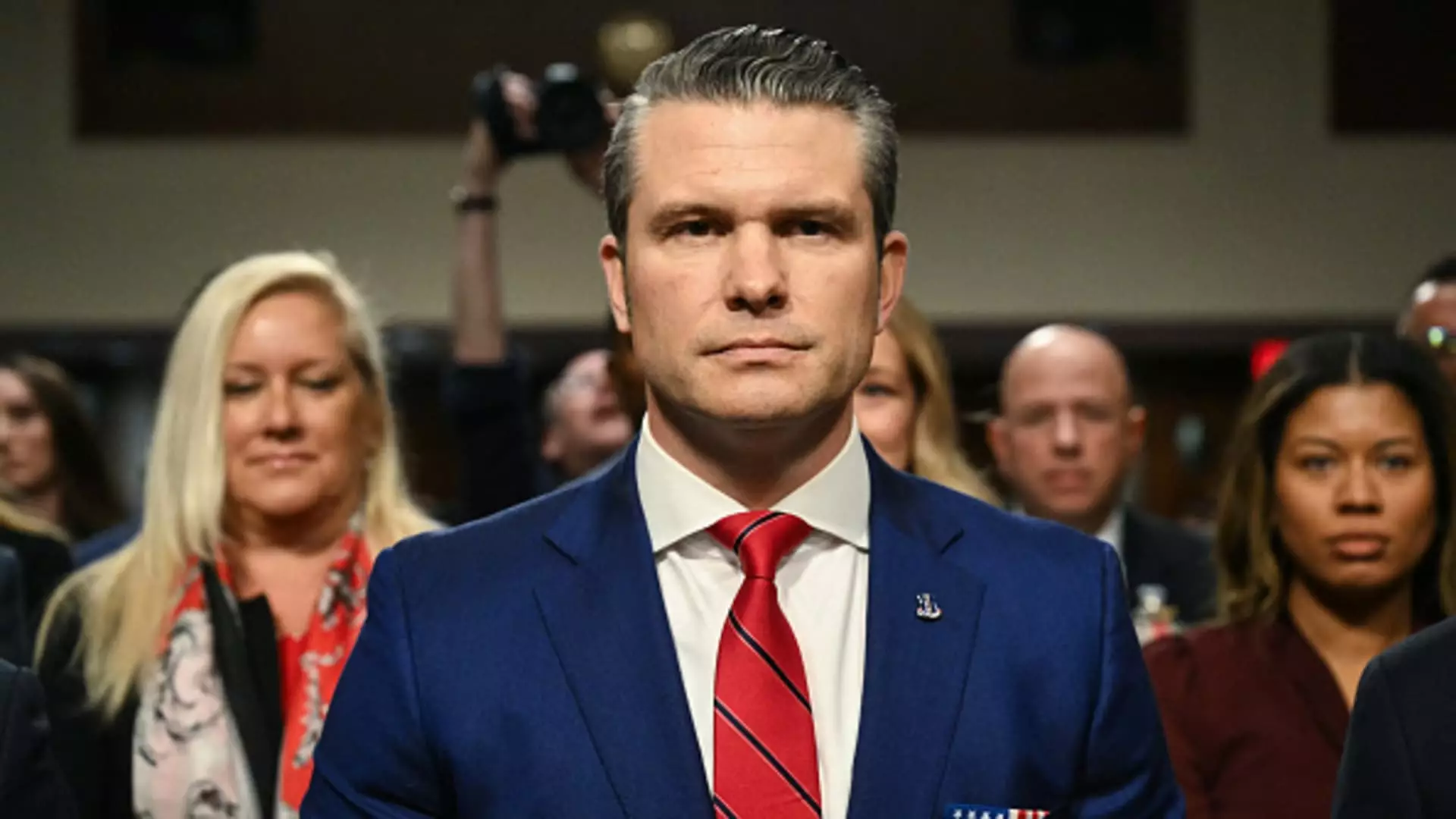The Senate’s recent deliberations surrounding Pete Hegseth’s nomination as defense secretary illuminate not only the contentious landscape of American politics but also the complexities of leadership in contemporary government. Hegseth’s bid for confirmation encapsulates the precarious balancing act of prioritizing military culture while navigating allegations that have raised serious ethical concerns. As the pressure mounts from both the Republican establishment and the administration, Hegseth’s case serves as a litmus test for the Senate’s commitment to standards of conduct amid the shifting tides of political allegiance.
At the heart of Hegseth’s nomination lies a paradox: while Senate leaders tout his military service and the purported return to a distinct “warrior culture” within the Pentagon, they must also contend with troubling allegations of misconduct. These allegations include claims of excessive drinking and inappropriate behavior towards women as well as allegations of past domestic abuse. Such issues present a significant challenge for a Senate that must reconcile its promotion of a strong military ethos with the necessity of ethical leadership.
The comments made by Senate Majority Leader John Thune are indicative of a broader sentiment within the Republican party, emphasizing an agenda rooted in a rejection of “woke distractions.” In saying that Hegseth would restore a focus on “war fighting,” Thune attempts to position military leadership as distinct from contemporary social issues. However, this perspective raises pertinent questions: At what cost does the Senate prioritize military culture, and what message does the potential confirmation of Hegseth send regarding the treatment of women in the military?
The dynamics surrounding Hegseth’s nomination also underscore the significant influence exerted by former President Donald Trump, whose commitment to reshaping the GOP and reinforcing his base remains palpable. Trump’s vocal support of Hegseth, contrasting with his criticisms of dissenting Senate Republicans, illustrates the precarious nature of party loyalty amid allegations of serious misconduct. The president’s approach places pressure on those within his party who may harbor reservations about Hegseth.
Senators Lisa Murkowski and Susan Collins have emerged as notable dissenters, illustrating a fracture not only within the party but also reflecting a struggle between personal conviction and party loyalty. In the face of mounting pressure, the calls from some GOP senators like Mike Lee strengthen the narrative that party unity may outweigh ethical considerations, even at the potential cost of women’s representation and safety in military roles.
The scrutiny regarding Hegseth’s views on women in military roles has provoked significant dialogue, drawing attention to deeper issues of gender dynamics within the armed forces. This critical examination raises an uncomfortable question: Can an individual who has previously expressed exclusionary views on women’s combat roles effectively lead a department that must navigate the balance of inclusion and military efficacy?
For Senator Murkowski and others, Hegseth’s confirmation represents a regression in the progress made towards a more inclusive military, a notion that resonates across party lines. Critics argue that endorsing Hegseth positions the Senate in stark contrast to the evolving standards of conduct expected in modern military leadership.
Hegseth’s candidacy also lays bare the Senate’s role in vetting presidential appointments, particularly in national security. With the GOP holding a slim majority, the stakes of this confirmation are high. Senators are acutely aware that their decision will impact not only the direction of the military under Hegseth’s leadership but also set precedents for future nominations.
The dialogue surrounding the potential for “recess appointments,” for example, hints at broader concerns about the erosion of the Senate’s “advise and consent” role. Trump’s interest in bypassing the confirmation process altogether signals a potentially radical pivot in executive power that could further diminish the Senate’s authority and oversight capabilities.
As representatives prepare to cast their votes on Hegseth’s nomination, they must confront more than just the candidate’s qualifications. They are being called to reflect on their political values, their responsibilities to their constituents, and the long-term ramifications of their decision. Will they uphold the principles of ethical leadership and gender equity in military roles, or will they reaffirm a culture that prioritizes party loyalty over moral integrity?
In the end, the outcome of Hegseth’s confirmation will reveal much about the current state of American politics, the prevailing attitudes towards leadership, and the ongoing struggle to define the future of military culture in a rapidly evolving world.


Leave a Reply